You've heard of ‘teamwork makes the dream work,’ and that quote holds true for every business. Team building games are a way for businesses to build relationships and collaboration within the workplace. They encourage trust and communication, but they can also be lots of fun too.
However, there is the matter of finding the right team building games on top of planning the whole thing.
Fortunately, team building activities for small groups do not require resorting to outdated and awkward ice breakers from primary school. Additionally, organizing these gatherings can be much less stressful than anticipated.
In this brief guide, we’ll walk you through the types of fun activities to have in team building, why team building is important for company success, a few planning tips for team building activities for small groups, and some interactive games to try during the event.
Why Team Building is Important for Small Groups
Team building games are not just activities to help pass the time. They play an important role in developing relationships and collaboration between small groups.
-
Better communication. For any company to succeed, effective communication is key. Playing team building games for adults can help break down barriers in communication, encourage open dialogue, and make sure that everyone’s voice is heard.
-
Build stronger trust. You’ve heard people say how trust is the foundation of any high -performing team. When members of a small group join in on collaborative activities, they learn to rely on each other’s skills and expertise. This builds mutual respect and trust, and better performance in the workplace.
Fun and Interactive Games for Small Group Team Building
When planning team building activities for small groups, you need to select activities that encourage collaboration, communication, problem- solving, and creativity.
And since it’s for a small group, the team dynamic and chemistry is something you need to think about too. After all, no one’s having fun in an awkward event. That’s why the right types of team games can make all the difference.
You want your team to stay engaged, and this is where fun and interactive games come into play. Here are some fun team games to try and how they work.
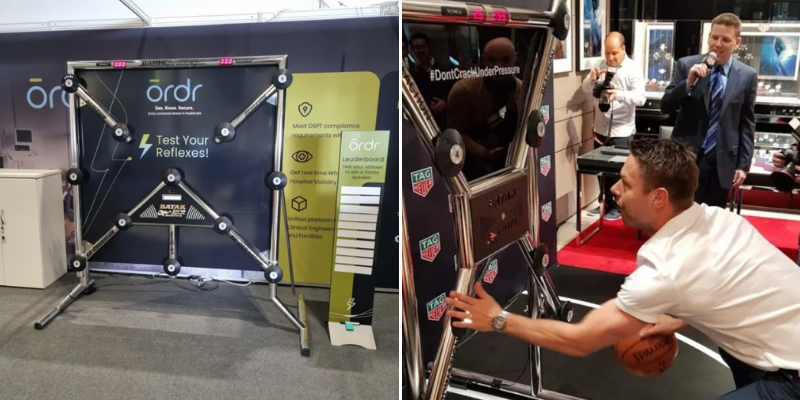
This game challenges your team’s reflexes and coordination. Players need to hit illuminated targets as they light up. It’s a test of speed and focus in a competitive environment. It’s a great way to promote teamwork and concentration.
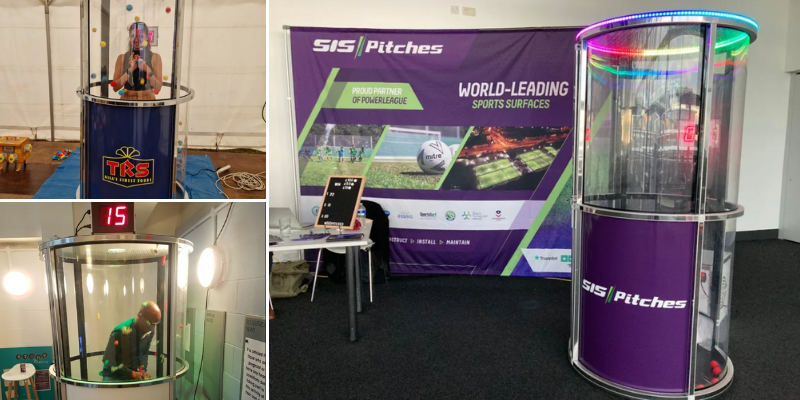
A thrilling and dynamic game where one or two people enter a clear wind- filled capsule. From that point on, it’s a race against the clock to collect as many balls or as much cash as possible. It’s a very high -energy activity that encourages quick thinking and teamwork.
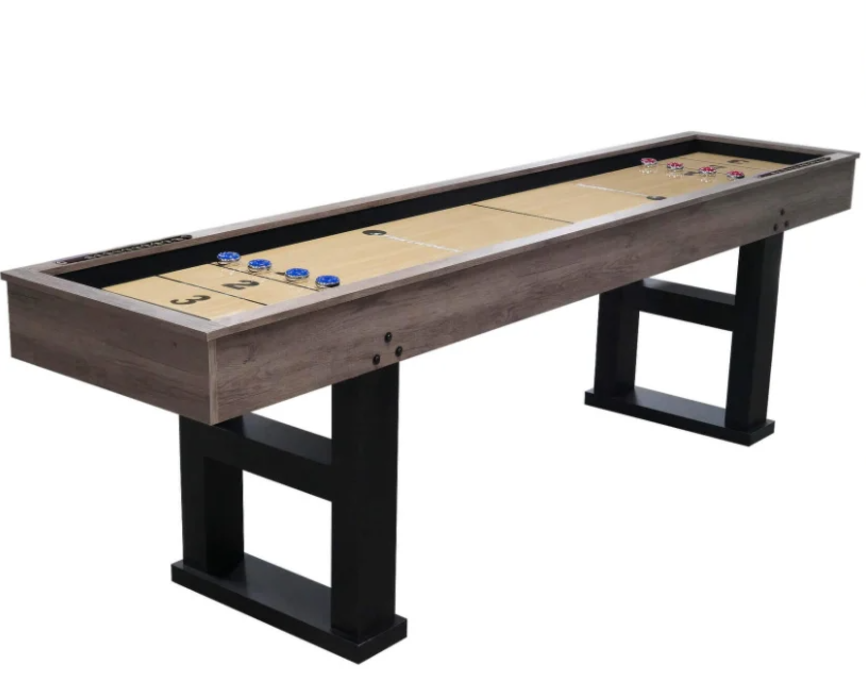
Here’s a classic game that’s perfect for smaller teams. Players slide pucks down a long, smooth surface with the goal of landing them in specific scoring zones. It’s a fantastic way to engage in friendly competition while fostering collaboration and strategy.
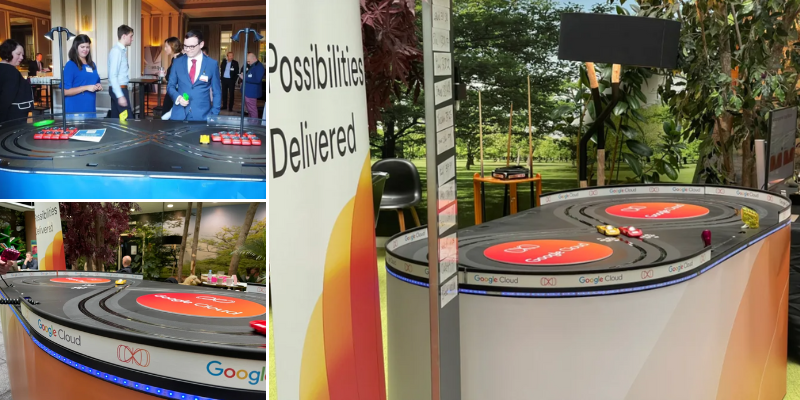
If your team loves a bit of speed and competition, Scalextric Slot Car Racing is an exciting game where participants race model cars around a track. It’s an excellent choice for fostering teamwork and coordination.
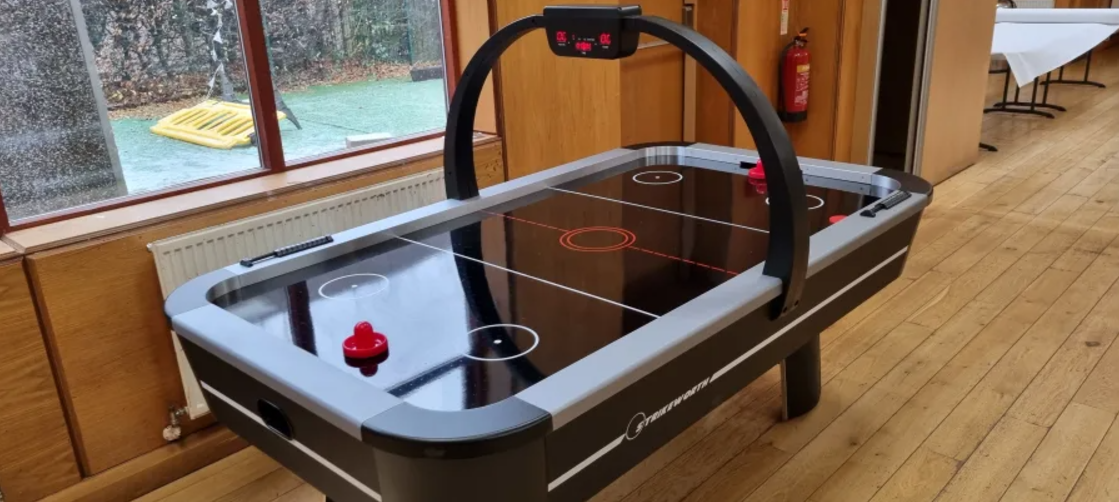
Air hockey is fast- paced and perfect for small group interactions. In this game, players work in pairs or teams to score goals by hitting a puck into the opponent’s goal. It’s a fun, interactive way to enhance communication and strategic thinking.
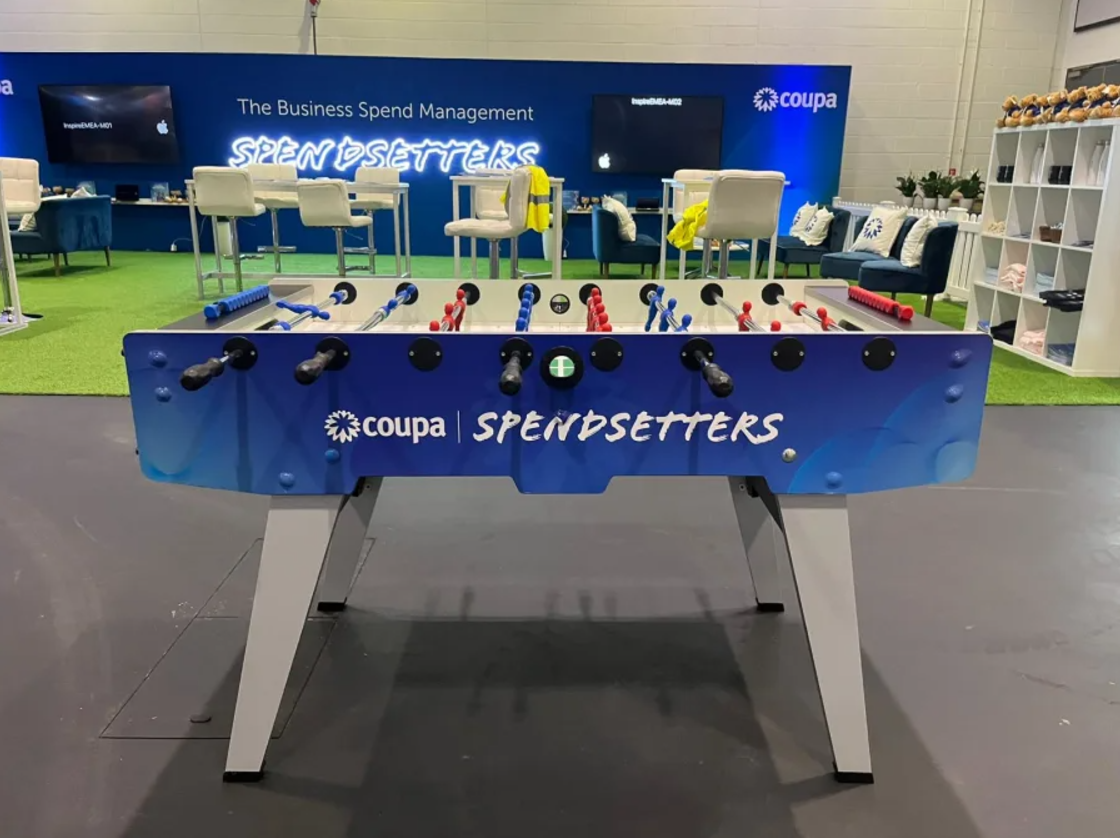
Also known as foosball, football tables are a popular choice for team building. Let your teams compete in a simulated soccer game. It’s a game that requires coordination, teamwork, and quick reflexes if you want to score goals and win.
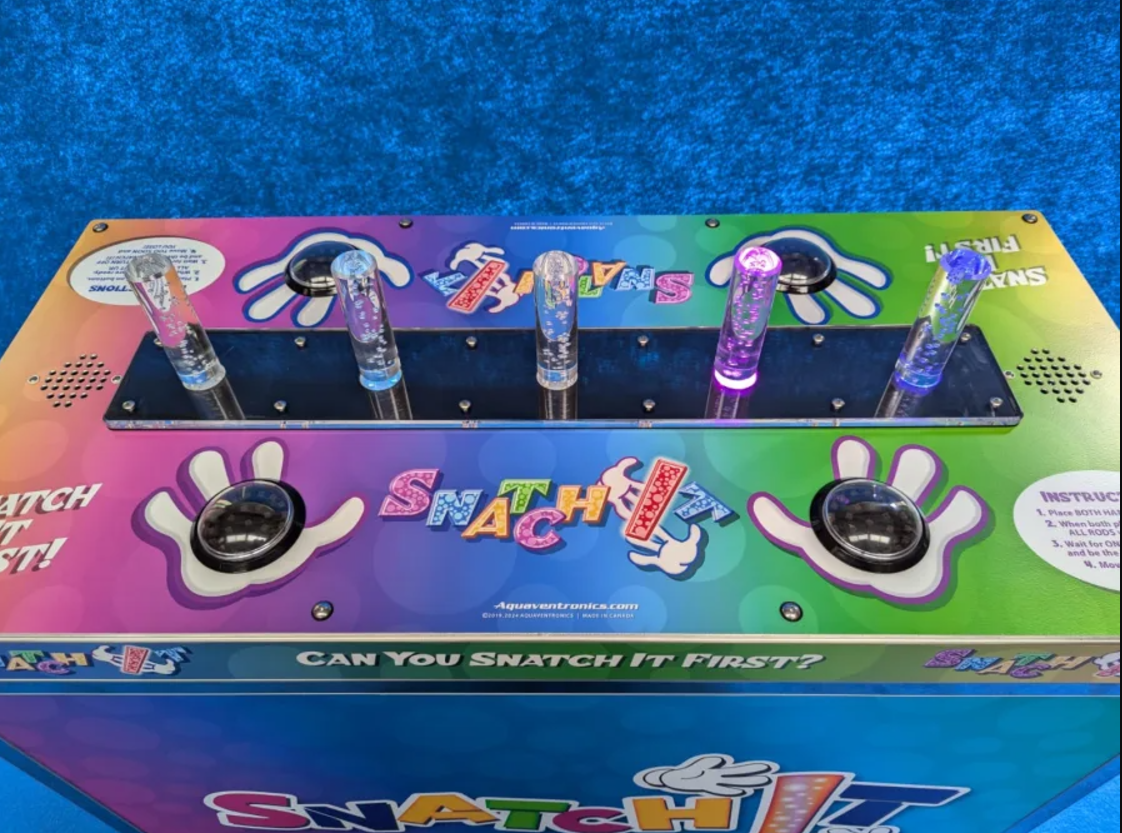
This interactive, competitive game challenges players to grab light-up cylinders as quickly as possible when they light up. It’s a simple yet exciting way to engage small teams in friendly competition. It also has the added plus of boosting team spirit and communication.
4 Important Tips for Planning a Successful Small Group Team Building Event
Now let's face it, planning anything, even something as seemingly simple as a small -group team building event can be stressful. But here are some helpful and important tips that you need to remember to make your event effective and enjoyable for everyone.
1. Set Clear Goals
Before organising team building activities, define the aim and objectives of the event. Do you want to improve communication, solve a specific workplace problem, or simply foster better relationships? Clear goals will help you choose the best activities.
2. Consider Team Interests
Choose activities that fit your team’s interests and energy levels. If your group enjoys outdoor adventures, an outdoor team-building exercise may be ideal. On the other hand, if your team prefers something more relaxing, maybe a chill cooking class, creative brainstorming sessions, or competitive indoor and interactive games might be better suited.
3. Inclusivity and Accessibility
Make sure that the activities are inclusive and accessible to every team member. Consider any team member’s physical limitations and preferences. Activities should be designed to include everyone, regardless of their background or ability.
4. Keep it Fun and Lighthearted
While team building should have a goal, it’s also important to make sure the activities are enjoyable. Fun team building activities create lasting memories and foster positive feelings toward collaboration, making future work interactions smoother and more productive.
Frequently Asked Questions
1. Can team building activities improve communication in small groups?
Absolutely! Team building activities for small groups encourage open dialogue. Depending on the activities or games you choose, each member of the groups gets the chance to practice and improve their communication skills.
2. What are some low-cost team building activities for small groups?
Simple activities like trivia quizzes, ice- breaker games, or problem-solving challenges can be both engaging and low-cost.
3. Are there team building activities that can be done in an office setting?
Yes! Activities like brainstorming sessions or team trivia can be done easily within an office space. Hiring arcade games or other interactive games are also a great idea if you want to hold the activity indoors.
4. How do you choose the right team building activity for a small group?
Consider the goals of the event and the team’s interests. Think about the type of activity too, and if a physical, mental, or creative activity would be more beneficial. Make sure to match the activity to your team’s strengths and preferences.
5. How long should a team building activity last for a small team?
Small group team building activities typically last between 30 minutes to 2 hours, but it depends on the type of activity and the group’s attention span as a whole.
6. How do team building activities help build trust in small teams?
When teams work together in fun and challenging activities, they build trust. Certain games or activities rely on each person’s abilities and their ability to communicate openly and support one another.
Final Thoughts
With the right games, strengthening camaraderie within the team and creating a positive and productive work environment is more than possible. But above all, it’s important to enjoy the event and have a blast!
If you’re looking to take your team -building event to the next level, consider adding Fun Pro UK’s
game hires to the mix. Our team building games for work are perfect for small groups — promoting trust, creativity, and teamwork in an interactive and enjoyable way.
<< Return to news